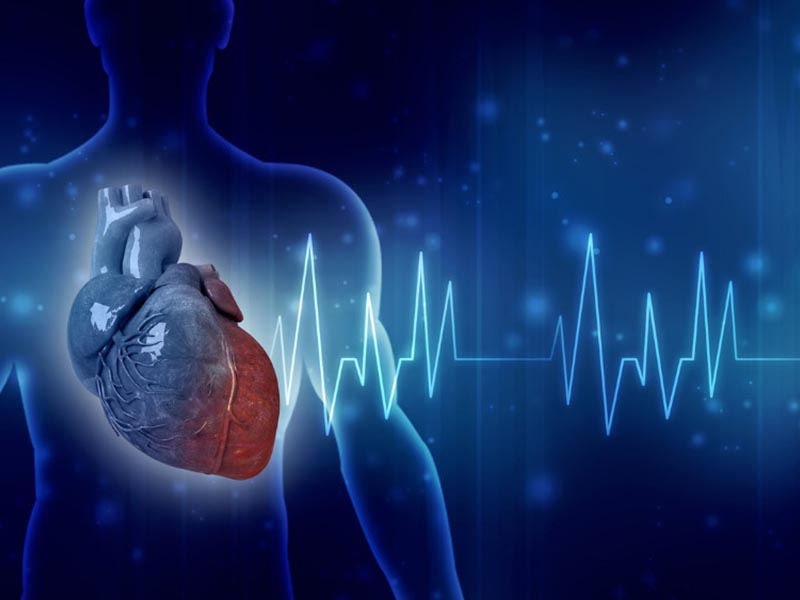Clinic Consultation in Orangeville / ON is a leading healthcare provider renowned for its comprehensive Electrocardiogram (ECG or EKG) exam services. This vital diagnostic tool measures the heart's electrical activity, helping our skilled cardiologists detect and evaluate various heart conditions such as arrhythmias, coronary artery disease, and heart attacks. Our clinic is equipped with the latest ECG technology, ensuring accurate and detailed heart rhythm analysis. Patients undergoing an ECG at Clinic Consultation can expect a quick, non-invasive procedure conducted in a comfortable and supportive environment. Our dedicated healthcare team provides clear instructions for preparation and follows up with thorough explanations of the results, ensuring patients are fully informed about their heart health. For individuals in Orangeville / ON, seeking expert cardiovascular assessment, Clinic Consultation offers unmatched professionalism and care, making it the preferred choice for Electrocardiogram exams and comprehensive cardiac care.
Electrocardiogram in Orangeville / ON

Watch our video about Electrocardiogram
Electrocardiogram in Orangeville / ON
An Electrocardiogram (ECG or EKG) is a non-invasive medical test used to measure the electrical activity of the heart. This procedure records the heart's rhythm and electrical impulses, providing valuable information about the heart's condition. Doctors use ECGs to diagnose and monitor various heart conditions, including arrhythmias, heart attacks, and other cardiovascular disorders.
During the procedure, electrodes are attached to the skin of the chest, arms, and legs to capture electrical signals from the heart. These signals are then displayed as waves on a monitor or printed on paper, allowing doctors to analyze the heart’s activity. The test is quick, painless, and provides immediate results.
Types of Electrocardiograms
Resting ECG
A Resting ECG is the most common type of electrocardiogram, performed while the patient is lying down and at rest. This test provides a snapshot of the heart's electrical activity in a resting state, making it useful for detecting heart rhythm problems, such as arrhythmias, and identifying previous heart attacks.
During a resting ECG, electrodes are placed on the chest, arms, and legs, and the patient remains still for a few minutes while the machine records the heart's electrical impulses. The test is quick, typically taking 5 to 10 minutes, and results are available immediately. Resting ECGs are often part of routine check-ups or used when patients experience symptoms like chest pain, dizziness, or shortness of breath.
Stress ECG (Exercise ECG)
A Stress ECG, also known as an Exercise ECG or Treadmill Test, is performed to assess how the heart functions under physical stress. During this test, the patient walks on a treadmill or pedals a stationary bike while their heart rate, blood pressure, and ECG are monitored. This test is particularly useful for diagnosing conditions like coronary artery disease, where the heart's blood supply is reduced during exercise, causing chest pain or discomfort.
The stress ECG helps doctors determine how well the heart copes with increased physical demands and can reveal abnormalities that might not be present during a resting ECG. It is also used to evaluate a patient's fitness level before undergoing surgery or starting a new exercise regimen. The test takes about 15 to 30 minutes, depending on the patient's ability to exercise, and results are analyzed immediately after completion.
Advantages of an Electrocardiogram
The electrocardiogram offers several advantages as a diagnostic tool:
- Non-invasive: ECGs are painless and require no needles or incisions, making them a simple and risk-free procedure for patients.
- Quick results: Most ECGs take only a few minutes, and the results are available almost immediately, allowing for prompt diagnosis and treatment.
- Early detection: ECGs can detect a variety of heart problems, including arrhythmias, heart attacks, and blockages, even before symptoms are noticeable.
The procedure is short, typically lasting 5 to 30 minutes depending on the type of ECG. It requires no recovery time, allowing patients to resume normal activities right away.
Frequently Asked Questions (FAQ)
1. How do I prepare for an ECG?
For a standard ECG, no special preparation is required. However, for a stress ECG, your doctor may ask you to avoid eating or drinking caffeine for a few hours before the test. You should also wear comfortable clothing and shoes suitable for exercise.
2. Is an ECG painful?
No, an ECG is completely painless. Electrodes are attached to your skin, but they do not cause discomfort or shock.
3. Can an ECG detect a heart attack?
Yes, an ECG can show signs of a previous or ongoing heart attack by detecting abnormal heart rhythms or reduced blood flow to the heart.
ECG Services at Clinic Consultation
At Clinic Consultation, we offer comprehensive ECG services to assess your heart's health and provide accurate, timely results. Whether you need a routine resting ECG or a stress test to evaluate heart function under exercise, our experienced medical team is here to guide you through the process and ensure you receive the best care possible.
Book an appointment today to schedule your electrocardiogram at Clinic Consultation and take the first step toward better heart health.
Click the button below to schedule your appointment online.